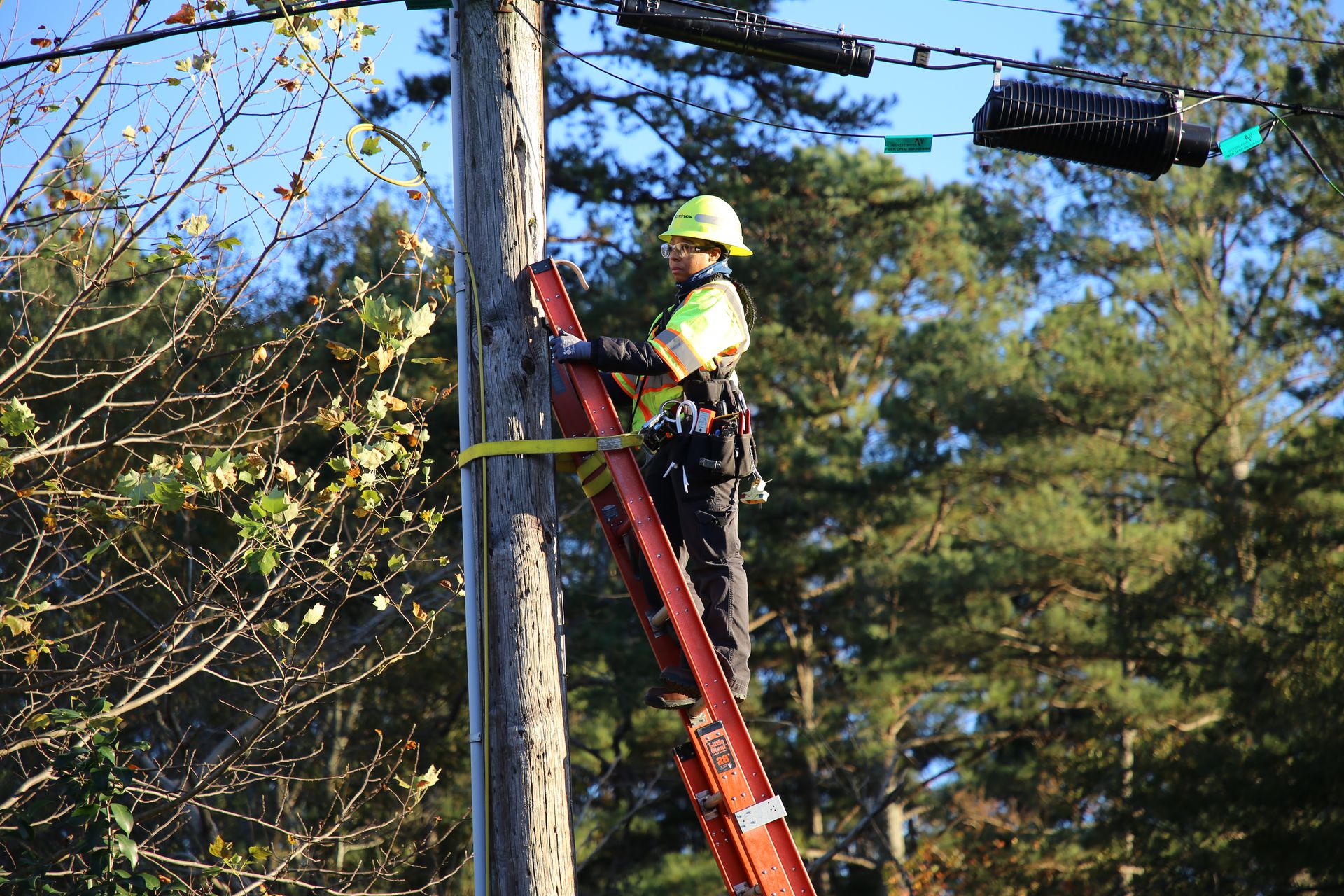Network Investment and Access
Partnering to Accelerate Broadband Deployment in Massachusetts
June 6, 2022
Share Article:
Over the past four years alone, Charter has invested to expand our network and bring Spectrum Internet access to an additional four million new homes and small businesses, roughly one million of which were in rural areas. We know first-hand what it takes to deploy broadband and the hurdles we may face—that’s why the work being done in the Commonwealth of Massachusetts through its Make-Ready Working Group has been so important. Over the last four years this working group, in partnership with companies like Charter and the Massachusetts Broadband Institute (MBI), has been breaking down some of the most significant barriers to broadband expansion and accelerating deployment.
The Importance of Access to Poles
When it comes to expanding broadband, utility poles are a critical piece of the puzzle, but they can also be one of the biggest sources of delay, especially in rural areas. Before Charter’s construction work can begin, we need to get permits and access that allow us to attach our equipment and lines to the poles. The process for making the poles ready for broadband network attachments is called “make-ready” work. Completing make-ready work is essential to getting 100% of the country online, which means local governments and utility pole owners play a crucial role in how quickly families can get connected. While Charter provides the internet connection into our customers’ homes, we need cooperation from pole owners, especially in rural areas. Faster make-ready can shave months – or even years – off the time to deploy service to customers.
Setting an Example to Expedite Broadband Deployment
To accelerate rural broadband access, you also have to speed up make-ready efforts. The Make-Ready Working Group, an effort initiated in 2018 by Massachusetts Governor Charlie Baker and Lieutenant Governor Karyn Polito, brought together utility companies, internet service providers, and construction contractors, and was managed by the Massachusetts Broadband Institute. The working group held regular meetings, implemented new practices and protocols, escalated any issues that arose, and tracked the progress of make-ready work across Western and Central Massachusetts.
To date, Charter’s partnership with the working group has resulted in buildouts that have delivered gigabit-speed broadband access to approximately 9,200 new households in ten Central and Western Massachusetts communities, including Hancock, Hinsdale, Lanesborough, New Braintree, New Marlborough, Peru, Princeton, Sandisfield, Tyringham, and West Stockbridge. Since the working group was formed in 2018, this more efficient make-ready process has helped accelerate work impacting nearly 40,000 utility poles, resulting in the installation of 2,000 miles of fiber optic cable across 53 towns.
In the coming years, our rural construction initiative will add over 100,000 miles of new network infrastructure to deliver gigabit-speed internet access to more than one million currently-unserved, mostly rural homes and small businesses across the country. This Make Ready Working Group collaboration is an important example of how government and industry can come together to work toward the common goal of closing the digital divide – and doing it faster.
